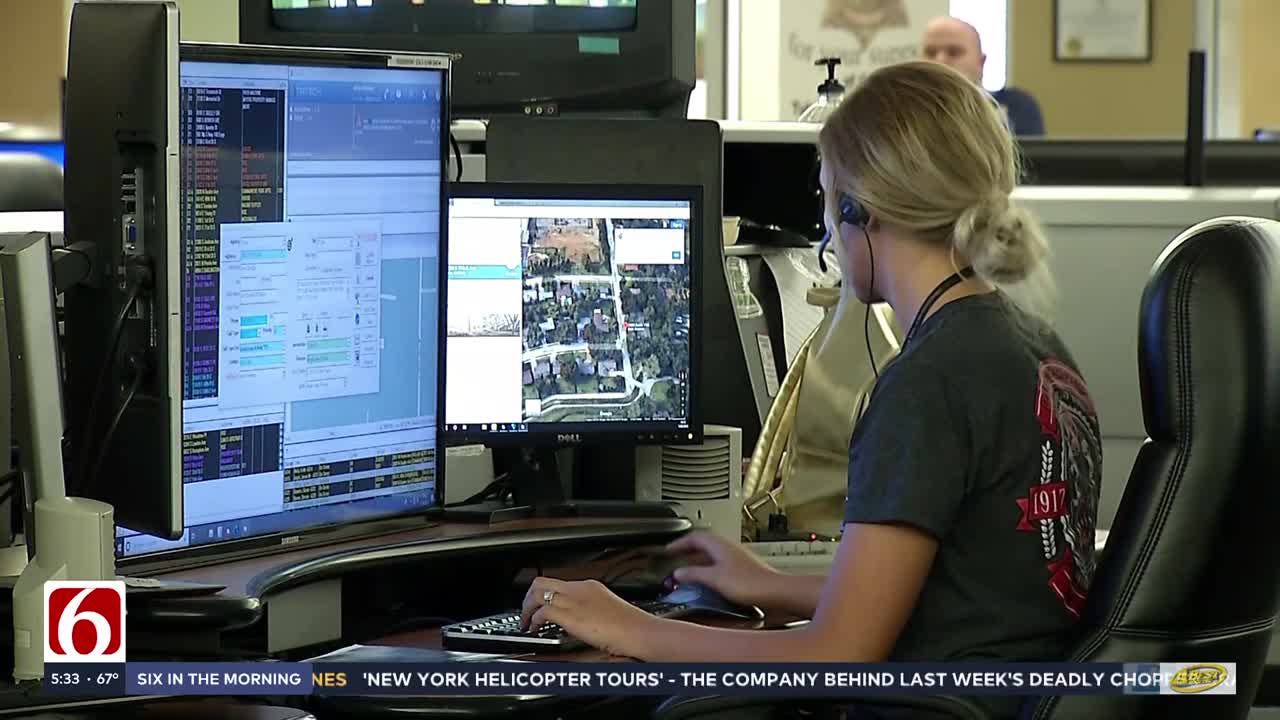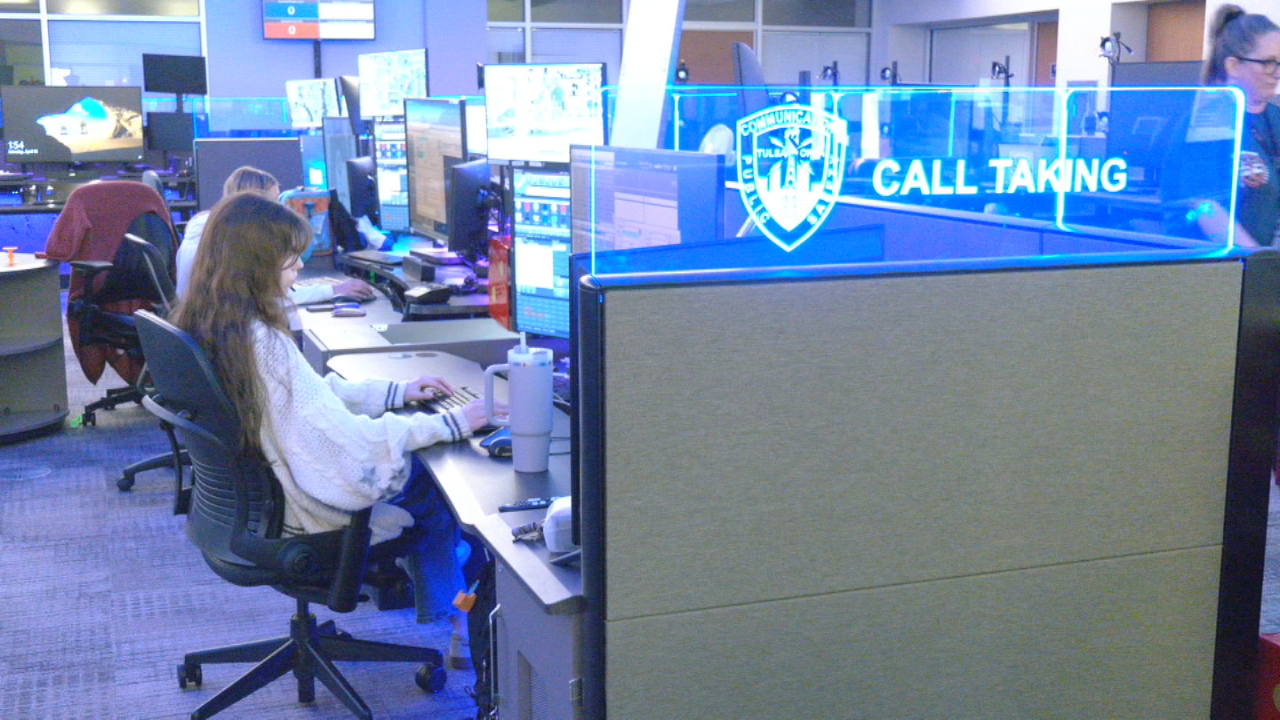Tulsa 911 center now includes mental health expert to assist in crisis calls
Tulsa 911 Call Center now includes a mental health clinician, a collaborative initiative with Family & Children’s Services offering immediate COPES support to handle mental health crises more effectively.Monday, April 14th 2025, 4:53 pm
TULSA, Okla. -
Tulsa’s 911 Call Center now includes a mental health clinician as part of a new initiative to better handle mental health emergencies.
City leaders partnered with Family & Children’s Services to embed a COPES (Community Outreach Psychiatric Emergency Services) professional directly into the dispatch team.
The move is designed to ensure that not all mental health-related calls default to police, fire, or other emergency responses—ultimately streamlining services and getting people the help they need more quickly.
A New Kind of Responder on the Line
Tulsa’s 911 center is traditionally staffed by dispatchers who direct calls to police, fire, and emergency medical responders. But now, those teams have backup from a trained mental health clinician who can assess behavioral health situations as they unfold over the phone.
This on-site COPES clinician works hand-in-hand with dispatchers to manage calls involving mental health concerns providing immediate support while freeing up emergency personnel for other calls.
City Partners With Family & Children’s Services
The initiative is a collaboration between the City of Tulsa and Family & Children’s Services, which runs the COPES program. Officials say placing a clinician directly in the dispatch center marks a significant shift in how mental health calls are handled at the front line.
The goal is twofold: improve outcomes for people in crisis and reduce the burden on police officers and paramedics who are often not equipped to handle psychiatric emergencies alone.
Mayor and Council Highlight New Resource
Tulsa Mayor Monroe Nichols and the City Council are expected to highlight the new addition during a 1 p.m. news conference at the 911 Call Center Monday afternoon. The event coincides with National Public Safety Telecommunicators Week, recognizing the critical work of 911 operators across the country.
| Related Story: | Mayor Nichols, city leaders to host community conversations across Tulsa |
Mental Health Hotlines Still Available
City leaders stress that this new resource does not replace existing services like the COPES crisis line or the 988 Suicide & Crisis Lifeline. Both hotlines remain active and available for anyone experiencing a mental health crisis.
What This Means for Tulsans
City officials say the program is about expanding tools—not replacing them. It gives dispatchers more options in moments of crisis and lets officers focus on high-risk, high-priority emergencies.
As mental health continues to play a growing role in public safety, Tulsa’s 911 system may serve as a model for other cities looking to modernize their response systems.
More Stories About Mental Health Services In Oklahoma
- Tulsa mental health clinics briefly face contract termination scare in error; felt real for those impacted
- Tulsa leaders say termination notices sent to mental health providers were a 'mistake' amid funding concerns
- Oklahoma lawmakers assured mental health funds will continue despite confusion
- GRAND Mental Health training future law enforcement students to identify mental health signs
- Oklahoma lawmakers approve agreement to improve mental health treatment for inmates
- Tulsa police, local organizations concerned about funding cuts to mental health programs
More Like This
April 14th, 2025
Top Headlines
April 15th, 2025
April 15th, 2025
April 15th, 2025











